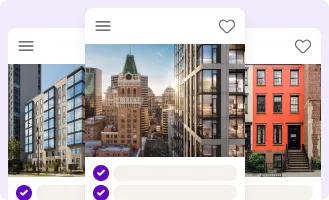
Apartment searching that doesn’t suck.
Apartment List transforms rental search into a guided journey — not an ad-driven scroll-fest. We help you move forward with clarity, ease, and confidence.

It’s everything the old way of finding an apartment isn’t.

Apartment searching that doesn’t suck.
Apartment List transforms rental search into a guided journey — not an ad-driven scroll-fest. We help you move forward with clarity, ease, and confidence.
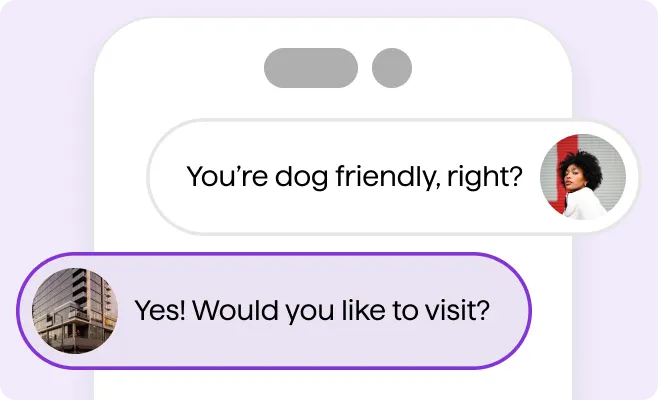
Transparency and Support
Transparent info. Reliable support — text properties 24/7*. We obsess over peace of mind, not page views.
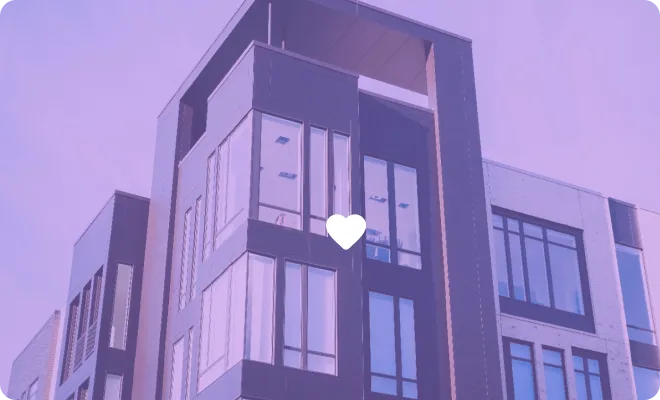
You Win, We Win Business Model.
Unlike traditional apartment search websites who get paid for clicks, we win when renters win.
| Personalized Matches | Personalized Matches: 'Available with Apartment List | Personalized Matches: Not available with other sites |
|---|---|---|
| Updated Listings** | Updated Listings**: 'Available with Apartment List | Updated Listings**: Not available with other sites |
| Built for Mobile | Built for Mobile: 'Available with Apartment List | Built for Mobile: Not available with other sites |
| Tour Instantly*** | Tour Instantly***: 'Available with Apartment List | Tour Instantly***: Not available with other sites |
| We Win When You Do | We Win When You Do: 'Available with Apartment List | We Win When You Do: Not available with other sites |
"Very efficient and user friendly search tool for finding your next home!"Tobi T.

Discover the optimal times to rent in your city based on seasonal market insights*, helping you make informed decisions and get the best value.
Charlotte’s rapid growth is fueled by banking and tech jobs, with the highest demand in Uptown, South End, and NoDa. New apartments are constantly coming online, but competition remains strong in trendy neighborhoods. Suburban areas and those along new light rail lines offer more space and better value.
Navigate apartment hunting and city life like a local with our curated articles about Charlotte, North Carolina.
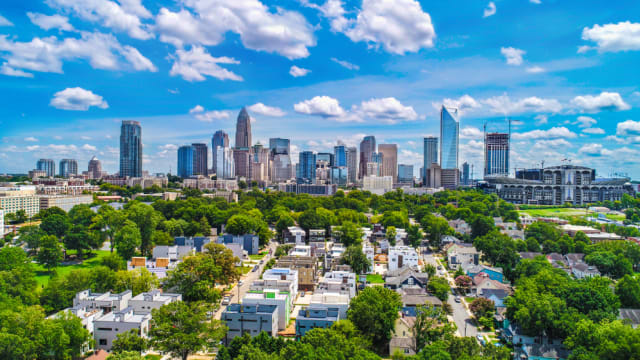
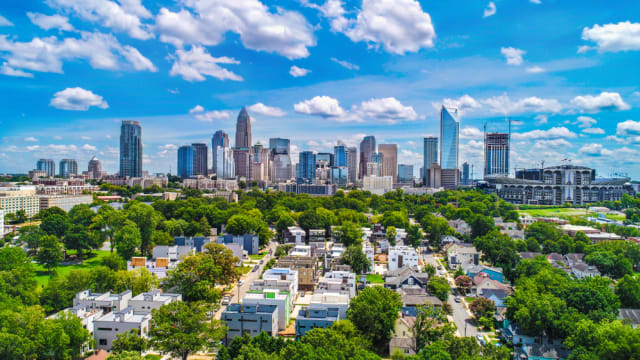

The average rent for a 1 bedroom apartment in Charlotte, NC is $1,591+, while the average rent for a 2 bedroom apartment is $2,057+.
*Based on base prices that don’t include fees
If you want major city amenities without the major city hustle, Charlotte offers a more relaxed lifestyle that blends Southern hospitality with modern urban living. Plus, easy access to both mountains and beaches for outdoor lovers. With a lower cost of living than other coastal hubs, Charlotte continues to grow: from its booming opportunities in tech and finance, to family-friendly neighborhoods and diverse cultural attractions.


Prosperity Church Road features newer developments with family-friendly amenities in rapidly growing northern Charlotte. Rental properties typically include modern finishes, attached garages, and community facilities creating suburban comfort. While the neighborhood provides excellent access to both I-485 connections and Northlake Mall shopping, the popularity of this growing district means traffic congestion can create delays despite the premium positioning. Most suitable for households seeking newer construction with good school access who don't mind evolving infrastructure in this developing section of Charlotte.
Corporate convenience defines Ballantyne West, where Charlotte's premier business district surrounds some of the city's most desirable rental communities with contemporary amenities. The neighborhood features carefully planned landscapes, extensive trail systems, and golf course access creating resort-like environments beyond purely functional housing. For professionals working within the Ballantyne corporate corridor, the area's rental options eliminate commuting considerations while providing sophisticated environments beyond purely practical considerations increasingly important as work-from-home trends continue affecting housing decisions beyond purely location calculations.
Urban revitalization transforms Optimist Park, where former industrial buildings and modest homes attract creative professionals seeking affordability near Charlotte's urban core. Residents enjoy the Blue Line light rail access to both downtown and University areas, plus emerging dining options along North Davidson Street. Though ongoing construction signals continued transformation, the established light rail connections already provide car-free options for commuting and entertainment access. The neighborhood's continuing evolution offers ground-floor opportunities as development spreads outward from the more established NoDa arts district adjacent to its northern boundary.